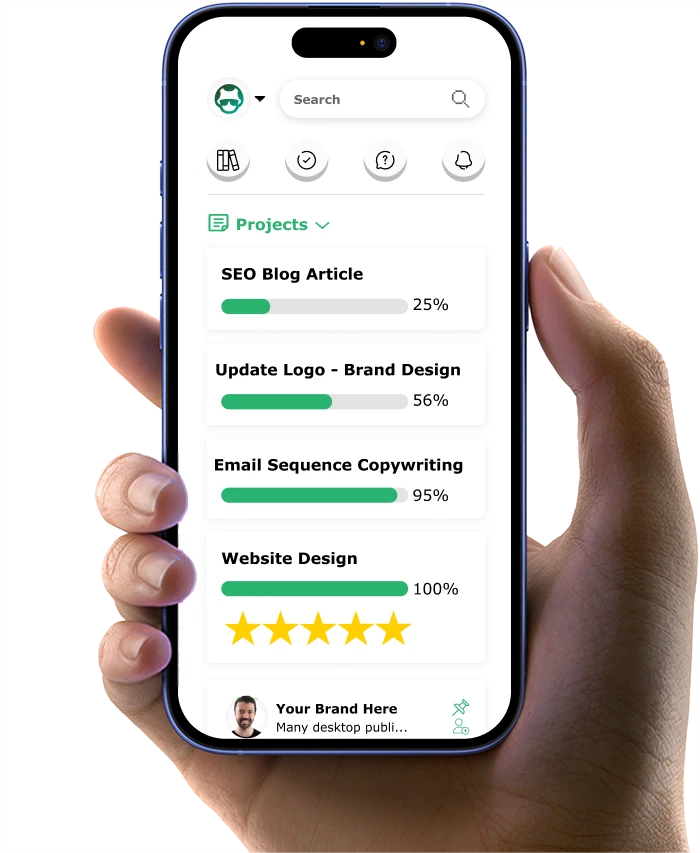How to Get Good Reviews & Customer Testimonials That SELL (w/ Examples)
Love.
Money can't buy it.
Sometimes only hard work earns it.
Or, if you're a business, simply providing a great product or service will earn it.
But how does that customer's "love" translate into more sales?
The answer: great online reviews and customer testimonials.
But even if you've done good by your customers, it can still be a challenge to get them to write a good review for you... And then you're faced with the question: where do I put them on my site? And what about social media and managing an account on a site like Yelp? How do I decide when it's right to open that door?
Keep reading and I'll give you a clear, well-researched answer to each of those questions.
I'm also confident you'll walk away from this article with compelling new ideas around how to get, present (as in, incorporate into your website design), and actively market your testimonials.
This is going to be a deep dive, so if you don't have enough time to read it all right now, just use the widget below to get a copy in your inbox to read later on.
[wufoo username="petovera" formhash="rn6bkwd1vdqpey" autoresize="true" height="260" header="show" ssl="true"]
I've also include a video summary here if you prefer that format.

Let's start from the beginning, with what is a customer testimonial?
What is a testimonial and why do you need them?
When people hear the word testimonial, many will think of something similar to the image above: a half-believable statement from some guy or gal in a late-night infomercial.
Not exactly something you'd want to emulate in your own marketing efforts right?
The fact is though, building out your marketing mix to include testimonials has incredibly powerful benefits for your business.
A testimonial (also referred to here as customer reviews) is a positive statement about the delivery of, or experience surrounding a company's product or service. The definition of the word reviews is similar except that a review is not necessarily positive unless otherwise stated.
Others, like one writer on Copyblogger.com defined testimonials as "stories."
Sorry but that's not accurate, that's actually what I refer to as "marketing fluffy fluff" -- which is a nice way of calling it: BS.
A story might be a good tactic for framing a request for a testimonial, which I'll talk more about down below. But a testimonial is not necessarily a story.
Why do you need to include testimonials as part of your web marketing mix?
Don't just take my word for it that having testimonials is a required item on your web marketing checklist. According to a survey conducted by Dimensional Research and sponsored by Zendesk, 90% of customers say they were positively influenced in their buying decision by online reviews.
But Matt, that's reviews not testimonials posted on the business's website. Or, at least, this research is referring to review websites like Yelp?
While that may be true, that number -- 90% -- is so overwhelming that it is hardly a leap to assume that testimonials and embedded reviews on a website affect the willingness of a prospect to inquire or buy much less if at all.
Online customer reviews are playing an increasingly larger role for local businesses over time.
According to a research survey from BrightLocal, between 2011 and 2013 the number of people who said "positive customer reviews make me trust a business more" rose from 55% to 73%.
On the far right of the graph below, can you see how this mirrors a steady decrease in the number of people who say they don't take notice of online customer reviews.
Testimonials & Positive Reviews = More Overall Sales
Earning testimonials from customers is important, not only because it influences their buying decision, but can actually result in higher overall sales.
This is shown in an ecommerce research study from Reevoo where reviews were shown to produce an 18% sales lift. They also found a positive relationship between having more reviews and an increased conversion rate.
Testimonials = An easy way to stand out
Since I started Growbo 4 years ago -- a web marketing company based in NYC -- I've examined thousands of websites. Many were small businesses and startups, some were medium size businesses and Fortune 500's.
Here's one critical observation I made.
About 6 months ago I ran a test campaign with custom, direct mail pieces sent out to small service businesses in the area. Mind you, I targeted these businesses specifically because I had identified them as companies who were actively spending money on marketing, between 4 and 5 figures every month.
The types of businesses I was targeting spanned a wide range of industries: roofers, lawyers, veterinarians, plumbers, accountants, and more.
Of the 27 pieces that were sent as part of the test, I reviewed each of their websites. Only 4 of them, or 15%, had testimonials included as part of their web presence.
That number is astounding to me when you consider the core purpose of testimonials. Brian Tracy, serial entrepreneur and sales expert, puts it so well:
"Testimonials of any kind increase desirability and lower price resistance."
The 15% number unfortunately makes in the context of my experience, having reviewed thousands of websites over the years. If asked, I would have made an educated guess that the number was be around 90-95% of business websites do not have testimonials.
Apparently, adding testimonials and reviews to your website is not only good for your bottom-line, but it will immediately differentiate you from a majority of your competitors.
At this point, we can agree on what testimonials are, and why they are an important part of the sales process. So... How do you actually go about getting them?
How to Earn Great Customer Testimonials
When I first started Growbo, we had no reputation to speak of.
So part of my focus in the first two years that we were in business was (a) be awesome at what we did and (b) collect testimonials from happy clients for whom we did great work.
In a relatively short amount of time, we were earning testimonials on a majority of the projects we competed. Here's why: we baked it into our sales and project management process.
Tip #1 - Require it!
At the start of our projects we included a simple paragraph in every signed agreement that stated that the client agreed to fill out a simple sign-off form once the project was done.
So at the end of each project we'd send the client the following form which we built in Google Docs.
Why did we do it like this?
As we put it (very idealistically) in the text of the agreement, relentless self-improvement was one of our core values as a business (still is by the way). And by requiring them to sign-off and give us feedback we would be able to reinvest our profits appropriately to give them and other clients an even better experience in the future.
Tip #2 - Follow-up
Often times, clients are happy to give you feedback and a testimonial, but because they are busy (or lazy), they are next able to get around to it.
In this case consider sending them reminder emails as well as giving them a quick phone call to check-in. People may simply prefer to speak the review to you over the phone.
It can take anywhere from 1 to 4 follow-up calls and emails. If after 4 times of following-up you still haven't earned a review from your client, it's time to try something different.
Tip #3 - Give them a formula for responding
If, after making yourself flexible to their schedule they are still unable to get you some text, the issue is probably that they don't know what to write. He or she probably feels that they need to "sit down and think about it" like it's a chore (unfortunately for you).
A good solution is to give them an example of what a great review might sound like and even give them a formula.
Here's one formula I learned from fellow entrepreneur Dane Maxwell in a Mixergy interview on how to write a compelling testimonial:
- "I [ insert benefit received ] + [ period of time the benefit was delivered in ] without... [insert painful / annoying thing you might have had to do in the past but now no longer have to do ]
- For example, what a great testimonial would sound like for a customer of a Kurig Coffee machine (note that you can also reverse the formula to state the pain point first, which can be even more compelling):
- "Before I got a Kurig, I used to have to wake up an extra 15 minutes earlier and walk across the street to the crowded coffee shop. Some days it would be raining or snowing, which made it even more of an annoyance, not to mention that the small cup of coffee cost arm an a leg. Now that I have my Kurig, I can make a free, gourmet cup of coffee daily in less than 3 minutes, I get to sleep in a bit more each day, and I'm saving literally hundreds of dollars every month."
Tip #4 - Write it for them, ask them to edit it
This one is kind of funny (to me) because I've felt weird when clients have asked me to this in the past. It's kind of like, really? It had to come to this? You can't write 1-2 sentences?
In either case though, it very effective because it overcomes the laziness factor and the customer hardly has to think.
Of course, as a rule of thumb, the less salesy it sounds and the more it has their own authentic voice, the better it will be over all.
Keep in mind, this tip is kind of a last resort.
Tip #5 - Don't call it a review or a testimonial... Call it a "tip"
At the end of the 6 question survey form that we sent out to clients at the conclusion of each project, we asked for a TIP and defined a "tip" as: a little something extra they could give us, either financially or in the form of positive feedback.
Of course, everyone opted to just give a written testimonial, which was fine by me.
Tip #6 - Simplify, and ask a leading question.
This one is a little more strategic and -- at worst -- calculating.
If other ways have proven less effective, you should consider asking one direct question which is likely to result in a simple answer at the very least.
For instance, you can try "How would you rate your experience working with us on a scale of 1 to 10?"
As the PsychologyForPhotographers.com (PFP) blog puts it "There’s nothing slimy or salesy about asking people what they thought."
Another good leading question from the PFP blog is "If you were to recommend us to your best friend, what would you say?"
After they respond to that initial question, you follow-up to get additional details and feedback. From the feedback you receive you can extract a testimonial. Just make sure you have their permission before publishing it somewhere.
This is another benefit of baking it into your process or into your client agreements. You get permission up front and don't need to ask later on.
The reason this tip has a high rate of success is because it's conversational, whereas other methods can appear more formal, thus triggering a different thought process on the part of the client, and, often, procrastination.
Tip #7 - Bribe 'em!
This method can work well especially if you are a local business and you're trying to build up a bank of positive customer reviews on Yelp.com for instance.
One of my clients started a campaign using this tip. She operates a local answering service company and the incentive to review their company was 2 tickets to a local event.
Other means of rewarding customers for positive reviews include:
- Coupons
- Contests
- Raffle prizes
- Free samples
Some entrepreneurs flat-out pay others to give them positive website reviews or testimonials. Check out Fiverr.com for examples of what I mean by this. I do not recommend paying for reviews.
Tip #8 - Do great work.
Chances are, if it's hard to get recent clients to give you testimonials you might be doing something wrong.
The basis for receiving a testimonial rests on the assumption that your company followed through and lived up to expectations.
If you're selling a product, the product looked like it did on your website when they received it and it functioned as expected. If you're offering services, was the end result achieved? Were the client's original goals and expectations met?
Sometimes though doing satisfactory, even great work isn't enough... You've got to go one step further...
Tip #9 - The Ice Cream Rule
On occasion I will eat out at a local Indian food restaurant. I love Indian food, highly recommend it if you haven't tried it.
I noticed one thing they do that genuinely pleased and surprised me: after you finish your dinner they will bring you a single scoop of ice cream. It's a freebie, compliments of the house they say.
The reason why this is so pleasing as a customer is because (a) they made the decision to give me something for free, (b) it was unexpected and (c) everything was already good or great before that point!
As a result, they converted me instantly from passive patron into an advocate. As a result I would happily recommend them to anyone who asks.
How can you give your customers just one, unexpected but pleasantly surprising scoop of ice cream? It's likely to make the difference between being perceived as a great business and just being a good business.
Examples of Good, Great, and Bad Customer Testimonials
The Bad
There are plenty of "bad" customer reviews floating around on the web. Spend no less than 5 minutes cruising around on Yelp or Google local reviews and you'll see what I mean.
So when I say bad, I don't mean bad reviews. What I mean are reviews and testimonials that a business might be willing to post on their website, yet they are weak. In other words, an ineffective testimonial is one that does not do the job of:
- building trust
- overcoming skepticism (authenticity is often key)
- being specific
- and isn't salesy
Here's an example.
If the picture above is hard to see, the example reads:
What I believe to be one the most invalabule parts to GoodBarry is their excellent support and customer service which to me installs confidence in the future of this great system.
"Oh really Scott? I don't mean to be snarky, but come on. I get nothing from your quote."
That might be how a cynical customer reacts, and a sales is lost. Here's what's wrong with this testimonial:
- The word "installs" is mis-used. It should be "instills."
- The bigger issue is that it is very generic. Describing the benefits with words like "great system" are generic and non-specific.
- Getting a testimonial about customer service usually suffers from this issue. So here's the solution...
When ever you wonder, "Is this a quality testimonial worth featuring on my website or elsewhere?" I want you to think of this image below.
A great testimonial is like this image because it tells a quick story, it's clear both in terms of words and visuals, and it's specific (see: 100 lbs.) about what the benefit was.
The Good
Here are some examples of good (not great) testimonials. The reason why these are only good is either because they aren't specific enough, don't sound authentic, or perhaps they completely lack a visual element.
From Viligante plumbing company in Brooklyn, NY (authentic, highly visual, but not specific enough).

From James T. Webmore's webinar on getting website traffic from YouTube videos (It's visually familiar since they are taken from Facebook and authentic, but not specific. You would not be able to tell what the product is at all if I hadn't first explained it).
The Great
These example testimonials fall under the heading of great, because they are specific, believable (read: authentic), and highly visual.
From My Content Sherpa (what makes this particularly compelling is that he mentions how the service helps him make more money so he can take care of his family -- something just about every one can relate to).
From WP Curve, this testimonial is from John Lee Dumas, who is a relatively well-known podcast host within the startup and business community.
This testimonial comes from Balkin plumbing company. Although it's not a video, it still has a good visual linked with several quotes from a customer. Each of them are specific, describe the benefits of hiring Balkin, and (thanks in part to the visual) sound authentic.
Finally, here's one from Basecamp.com, which is provides project management software for all kinds of businesses and organizations.
Should you open yourself up to testimonials and reviews on social media?
The short answer is: it depends.
If you are a startup (< 3 years old) or a business without well developed systems or if you just KNOW that (for whatever reason, maybe you're not following Tip #8 above) you will earn many negative reviews: don't do it.
By don't do it, I mean:
- Don't setup that Google local and Google plus page
- Don't build out your Yelp presence
- Do not turn on the 5-star ratings feature on your Facebook page
Without the confidence in the quality of how you deliver your product or service, investing in social media as a way of amplifying your customer's experiences is not a good decision. What will be amplified are negative reviews.
This is because startups often have a steep learning curve. Making big, sometimes costly mistakes can simply be part of the process.
If you're more established but you're still developing your systems so customers have a great experience everytime, this is also a valid reason to hold off.
As KISS Metrics recently described it in their blog post, saying there's a "dark side" to opening the doors to customer reviews:
There is one downside when it comes to opening the doors for reviews on your Facebook page, local search directories, and other sites that you can’t control, and that is the chance that all of the reviews will not be positive.Whenever you come across a negative review about your business, it is essential that you respond to it. If someone comes across a negative review, but also sees that you have offered to help solve the problem in a public forum, then that potential customer will see that you do care about your customer’s happiness, which may lead to a positive impression after all.
To give you a balanced perspective though, negative reviews aren't always a bad thing.
Most clear-minded people (i.e. the types of customers you actually want) can tell the difference between someone who is being reasonable and unreasonable in their review.
In either case, as long as you respond in a manner that is helpful and understanding, you serve to actually benefit from the negative review because it showcases (a) an authentic interaction between an unhappy customer and your business, and (b) it demonstrates your level of professionalism and care for the customer's concerns.
How should testimonials be incorporated into your website design?
After you've stockpiled at least a few testimonials and you're ready to feature them on your website, use this checklist to make sure you maximize their impact on your sales and lead generation:
- Three points test -- is the testimonial (1) authentic and believable, (2) specific, ideally telling a quick story (think about the before and after image I showed you above) and (3) visual
- To the 3rd point, it must at least have an image.
- If it passes the three points test and you've decided to use it, do not simply throw it onto a testimonials page. Instead, add it somewhere within your homepage or on a key landing page so that it's inbetween two different text sections (see screenshot from WPCurve.com below). This point is also supported in testing done by Dane Maxwell. As he explained, people are more likely to read testimonials when they have a "dedicated space." Otherwise, people might completely gloss over them, thinking "Ok this is the section where they will try to sell me..."
- Video is ideal because it is the most difficult medium to fake. "Real" is compelling (I talk more about video and conversion rates in the section coming up).
- If video is not possible, consider going beyond just including a picture of the customer. Consider adding a picture that matches with the specific benefit that the customer said they received. This takes advantage of what's called the "picture superiority effect." This theory comes from psychological research that shows after 3 days people are able to remember only 10% of something they read, but 65% if they are shown a picture.
- If the customer is a business and has a professional logo, consider including that as well. Do not have more than 3 sections to your testimonial design though (i.e. customer image, logo, and text OR customer video, relevant picture, and text).
- If you have many positive reviews and testimonials and aren't sure how to incorporate them all, consider an automatic javascript slider, like the one on this homepage.
- Consider incorporating your testimonials into your FAQ section. Not only does someone get their question answered, but they are simultaneously sold on buying from you because another customer told them the answer.
- Finally, have testimonials that testify to the various benefits of working with or buying from your company. Avoid using testimonials that say literally the same thing. If each testimonial says the same thing in three different ways, that's fine. But try to get some variety in there. Remember people are risk averse: do you keep your promise regarding your return policy? Is your customer service responsive? Is this product right for MY problem / pain point? Concerns like that that go beyond any specific product or service and right to heart of the question --why should you do business with us?
Will video testimonials convert better than text reviews?
Everything better (i.e. video), is more difficult to get or make.
That's the rule in life and it applies to your testimonial design as well.
Let's look at the evidence.
- According to ReelSEO video testimonials get watched for 100 seconds on average, which is great!
- For personal trainer, Carl Juneau, A/B testing video vs. text on his landing page increased his conversion rate by 46%.
- Intuit and Priceline, both billion-dollar businesses use video testimonials to convert visitors.
- Everyone knows that there are tons of scams on the internet today, which makes many prospective customers cynical during the buying process. Also, it is relatively easy to tell when some has fake customer reviews because the people who fake their reviews are often not clever enough to write them in a believable way (HA!). For this reason, it's logical to see why video testimonials are likely to convert better: they are much more difficult to fake.
Bottom-line: it's possible that text could work better. You have to test it to know for sure and make a data-driven decision.
Otherwise, if you have the option, obtain or make a video testimonial of your customers. The video simply provides much more clarity and authenticity.
Conclusion (and a free bonus)
Getting good reviews from customers is easier than you think if you focus on it and use just one or two of the tips I wrote about here.
The primary reason why reviews and testimonials are compelling elements in your sales funnel is because it's a personalized form of social proof. It demonstrates that you are company that meets or exceeds it's promises.
And because we live in a competitive, global economy, where the majority of businesses flat-out FAIL in their first few years in operation (let alone their first year), earning good reviews is even more critical for growing a sustainable business.
If you'd like to get my free bonus trick for how to actively market your testimonials and make more sales, enter your email below.
[wufoo username="petovera" formhash="s7frgw1mms9dd" autoresize="true" height="260" header="show" ssl="true"]
Thanks as always for taking the time to read this article, I hope you got received one or two takeaways which you can incorporate into your own sales process or website. Remember to share this with friends who might also benefit and subscribe via email for more weekly marketing tips and insights.
What was the biggest takeaway for you? Let me know in the comments.
Image credits:http://theantisocialmedia.com/tag/google/page/2/http://adhelper.biz/how-to-write-great-testimonials/http://www.webgranth.com/http://www.pibworthps.com/tag/testimonial-marketinghttp://vimeo.com/20221011http://www.balkanplumbing.com/queens-new-york-trusts-balkan-sewer-water-repair-replacement/http://www.forbes.com/sites/alexandrawrage/2013/03/20/microsoft-whistleblower-allegations-highlight-global-corruption-risks/http://www.webdesignviews.com/2012/12/the-pros-cons-of-responsive-web-designing/http://www.inc.com/guides/201101/how-to-increase-online-sales-by-increasing-website-conversion-rates.html































